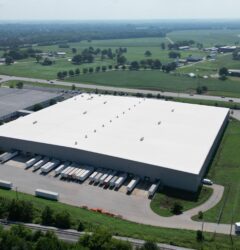12 Sep

Running a successful owner-operated trucking business requires more than just hitting the open road. It also entails managing your finances effectively. Keeping accurate and organized financial records is crucial for staying compliant with tax regulations, monitoring your business’s health, and making informed decisions. In this article, we’ll delve into essential bookkeeping tips for owner-operated truck drivers.
1. Separate Business and Personal Finances
One of the first steps in effective bookkeeping is to separate your business and personal finances. Open a dedicated business bank account to keep your transactions distinct. Mixing personal and business expenses can lead to confusion, tax problems, and difficulty tracking your business’s financial performance.
2. Record All Income
As a truck driver, you’ll receive income from various sources, including freight payments, fuel surcharges, and other reimbursements. It’s essential to record all sources of income accurately. Keep detailed records of each transaction, including the date, source, and amount. This will make it easier to track your earnings and identify any discrepancies.
3. Track Expenses Religiously
Truck drivers have a range of expenses, such as fuel, maintenance, insurance, permits, tolls, and more. Keep every receipt and document related to your expenses. Regularly update your expense records, categorizing them appropriately. This diligent tracking will help you claim deductions at tax time and manage your cash flow effectively.
4. Use Accounting Software
Invest in accounting software designed for small businesses or trucking operations. These tools simplify the bookkeeping process by automating tasks like expense categorization, income tracking, and report generation. Popular options include QuickBooks, FreshBooks, and Xero. Choose software that suits your needs and budget.
5. Set Up an Efficient Filing System
Physical receipts and documents can easily become disorganized on the road. Use a digital scanner or smartphone app to capture and store electronic copies of your receipts. Organize these documents in folders by category (e.g., fuel, maintenance, permits) to quickly access them when needed. A well-organized filing system can save you time and stress.
6. Monitor Cash Flow
Cash flow is the lifeblood of your trucking business. Regularly review your income and expenses to understand your cash flow patterns. This analysis will help you anticipate financial challenges and make informed decisions, such as when to invest in equipment upgrades or take on additional loads.
7. Budget Wisely
Create a budget that outlines your expected income and expenses. A budget serves as a financial roadmap and can help you plan for both short-term and long-term financial goals. Be realistic in your budgeting and adjust it as needed to reflect changing circumstances.
8. Stay Tax Compliant
Trucking businesses have specific tax obligations, including income tax, fuel tax, and potential employment taxes if you have employees. It’s crucial to understand these tax requirements and meet deadlines for filing and payment. Consider consulting with a tax professional who specializes in the transportation industry to ensure compliance and minimize tax liabilities.
9. Understand Depreciation
Truck drivers often invest in expensive equipment, such as trucks and trailers. Understanding depreciation can be advantageous for your bookkeeping. Depreciation allows you to allocate the cost of these assets over their useful life, reducing your taxable income. Consult with an accountant or tax expert to determine the depreciation method that’s best for your business.
10. Regularly Reconcile Accounts
Reconciliation is the process of comparing your financial records (e.g., bank statements, credit card statements) to your accounting records to ensure they match. This helps identify errors, discrepancies, or unauthorized transactions. Reconciliation should be done on a regular basis to maintain financial accuracy and integrity.
11. Plan for Seasonal Variations
Truck drivers often experience seasonal fluctuations in income and expenses. During busy seasons, ensure you set aside funds for slower periods or unexpected expenses. A financial cushion can help you navigate the peaks and valleys of your business more smoothly.
12. Keep Up with Industry Changes
The trucking industry is subject to regulatory changes, which can impact your finances. Stay informed about industry updates, tax law changes, and any new requirements that may affect your business. Being proactive can save you from unexpected financial challenges.
13. Seek Professional Help When Needed
Bookkeeping and accounting can be complex, especially as your business grows. Don’t hesitate to seek professional help when needed. An experienced accountant or financial advisor can provide guidance on tax planning, financial strategy, and compliance matters.
14. Review Financial Reports
Regularly generate and review financial reports to gain insights into your business’s financial health. Common reports include profit and loss statements, balance sheets, and cash flow statements. These reports can help you identify areas where you can improve efficiency or reduce costs.
15. Plan for Taxes Strategically
Taxes are a significant expense for any business. Work with a tax professional to develop a tax strategy that minimizes your tax liability while remaining compliant with tax laws. Strategies may include deductions, credits, and structuring your business to optimize tax benefits.
16. Audit-Proof Your Records
Keep your financial records well-organized and complete to withstand potential audits. Maintain accurate and detailed documentation of income, expenses, and deductions. An audit can be less stressful if you have well-documented records to support your claims.
17. Stay Financially Disciplined
Discipline is key to successful bookkeeping. Stick to your budget, avoid unnecessary expenses, and save for emergencies or future investments. Maintaining financial discipline can help you achieve your long-term business goals.
18. Plan for Retirement
As an owner-operator, it’s essential to plan for your retirement. Consider setting up a retirement savings plan, such as an Individual Retirement Account (IRA) or a Simplified Employee Pension (SEP) IRA. Regular contributions can help secure your financial future.
Effective bookkeeping is essential for the success of your owner-operated trucking business. By separating your finances, tracking income and expenses diligently, and using accounting software, you can maintain financial transparency and make informed decisions. Stay tax-compliant, budget wisely, and seek professional advice when necessary. With these practices in place, you’ll be on the road to financial success as a trucking entrepreneur.







